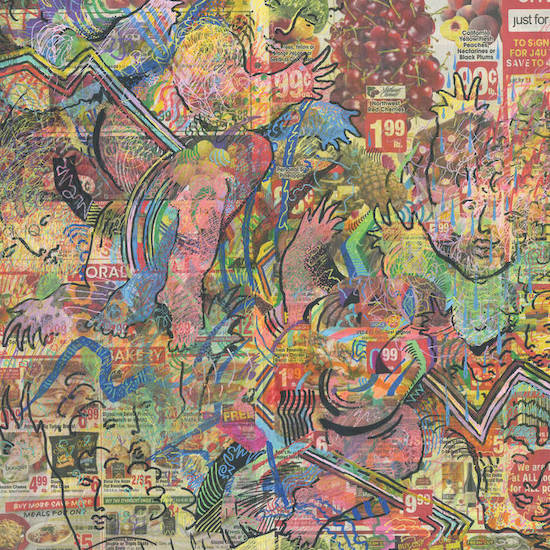Performing and recording music under the moniker MISZCZYK, the Toronto-based artist doesn’t reveal his identity any further. Secrecy seems to tie in with the concept of his debut album whose title suggests Greek mythology and potentially other interpretations. While the proper noun Thyrsis refers to a shepherd from a poem by Theocritus, the common version designates a giant redeye butterfly. MISZCZYK’s concept of Thyrsis echoes Idilli (I am Thyrsis of Etna Blessed with a Tuneful Voice), a 1976 work by American painter Cy Twombly. The phrase in brackets pays homage to Theocritus who declared his authorship by stating in his pastoral poem “I am Theocritus of Syracuse… I am the author of these pastorals. It is no alien Muse I have espoused.”
Produced in collaboration with sixteen artists, MISZCZYK’s 16-track debut bears a relevant reference. Despite the variety of genres and diversity of contributions, Thyrsis of Etna has a distinct sonic flavour. There is attention to balance. Each track has a cocoon-like sound that soothes and sedates a listener. The spell-like effect pervades each composition whether it’s Broadcast-esque gothic waltz ‘Pantin’, scratchy rap number ‘Runaway, I Age’ or the transparent ‘On Zuma Beach’. Initially a beatmaker, MISZCZYK indulges in creating basslines that add a groovy element to each composition.
Genre-wise, the record is kaleidoscopic. Featuring robotic vocoder vocals, downtempo ‘Nautilus’ brings to mind the delicate cinematic charm of Air. Occasionally, the patina of sound has a psych-folky quality, as if Finnish oddballs Paavoharju joined forces with Ariel Pink. Seemingly inspired by David Bowie’s Low album, ‘New for Old’ sounds as if it was played through an old-fashioned transistor radio. The frenetic post-punk beat on ‘The Garden’ contrasts with playful funky rhythms on ‘Automatic Shock’. Led by the recognisably velvety voice of Stereolab’s Laetitia Sadier, the alluring opener ‘In the Dark’ stands on its own.
With a few exceptions, the origins of artists contributing to Thyrsis of Etna seem ambiguous. It’s hard to pin down some of the profiles. Nigerian rapper NAI and Brodie Murdoch seem particularly mysterious. Elsewhere, the album mentions the well-known names of Sadier, Chad VanGaalen and Kate Bush’s creative partner Colin Lloyd Tucker. Regardless of the names and history, the music has enough to keep one intrigued – or at least entertained.


